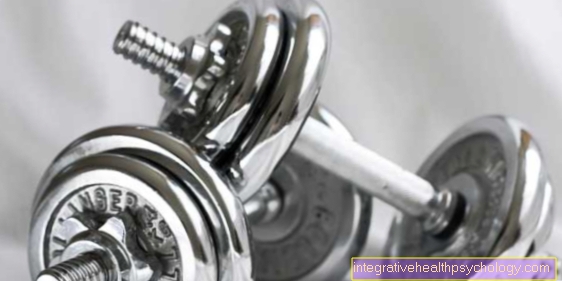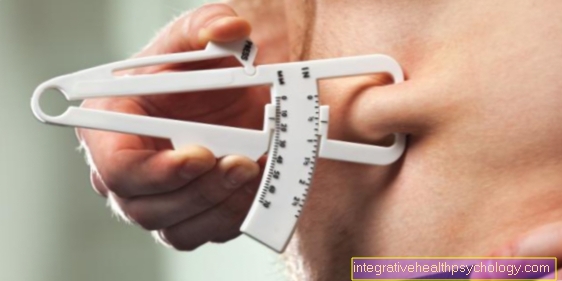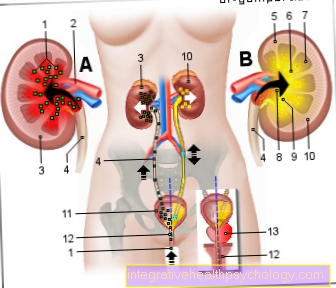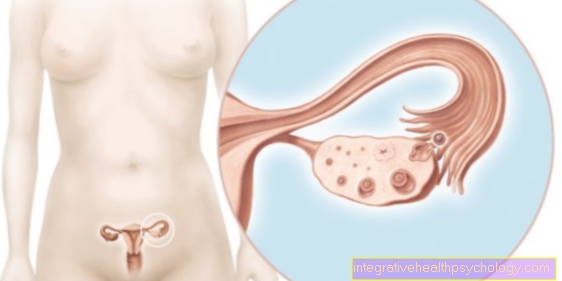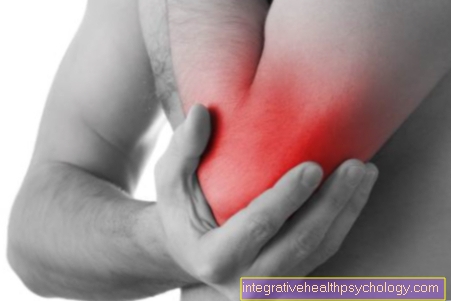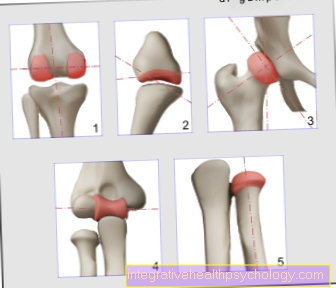How can you improve your stress resistance?
definition
Stress resistance is the individual resistance to stressful situations.
Such situations can look very different: Stress arises, for example, from lack of time, lack of money or illness. The stress at work or raising children can also be perceived as very stressful. If the resistance to stress is well developed, the stress is perceived as less bad, if it is poorly developed, it is perceived as worse.

How can you improve stress resistance?
There are different ways to improve your personal stress resistance. However, the focus should be on minimizing or even avoiding stressful situations as far as possible. For example, you should consciously pay attention to breaks when working. In addition, tasks should be processed in order of importance. This means that non-urgent work can also be postponed to the following working day, if necessary, in order to relieve the workload.
In addition, a healthy and conscious lifestyle is important to increase stress resistance. It starts with nutrition, for example.
Diets that are low in fat and low in sugar are beneficial to physical health and reduce the occurrence of diseases that are an important stress factor. Exercise is also essential to reduce stress. This is especially true for jobs that involve long periods of sitting and working in front of the computer. Sport also contributes to physical health. An intact social environment also noticeably improves stress resistance. The opportunity to talk to other people about your own stress and possibly even to receive enriching suggestions for solutions is a relief for many and contributes positively to stress resistance.
Although it is possible to work on the framework conditions for stress resistance, stressful situations cannot always be avoided. There are different approaches to dealing with this problem in order to be able to deal with acute stress. On the one hand, it is particularly important to be able to consciously recognize when you are feeling stressed. That sounds banal, but it cannot be taken for granted. This is due to the fact that in stressful situations people tend to think in tunnels and thus ignore a lot. On the other hand, you should react adequately to stress. There are numerous strategies for this, from which everyone can choose the ones that will help them personally. To do this, however, it is essential to know and have applied various strategies.
One way to deal with acute stress is to breathe consciously. The aim of this strategy is to gain a mental distance from the stressful situation through focused breathing and to relax physically. The principle of progressive muscle relaxation or autogenic training has a similar effect. Stretching or light strength exercises can also contribute to relaxation. If possible, it helps to create a spatial distance from the triggering stress and, for example, have a quick coffee or go outside in the fresh air.
This article might also interest you: What are stress factors?
How do I find professional help?
If you feel that you are particularly sensitive to stress or that you are physically and psychologically limited by it, it is a good idea to seek professional help. You can best find this from a psychotherapist. Psychotherapists have the most extensive training in stress management strategies. Therapists can either be found on the Internet or you can ask your nearest family doctor or outpatient psychiatrist. They may even be able to report on experiences with the therapist and make a recommendation. Some patients also find help from alternative medical service providers. However, always pay attention to the seriousness and competence of the provider.
Which doctor is responsible for this?
In principle, increasing stress resistance is not a medical task. The family doctor and psychiatrist can only help if there is a real depression. Nevertheless, advice can always be obtained from these doctors and, if necessary, mediated.
Relaxation techniques
Some relaxation techniques have already been mentioned. Two of these are highlighted in the following as examples.
Progressive muscle relaxation: The basic principle of progressive muscle relaxation according to Jacobson is the conscious tension and relaxation of individual muscle parts. The body feeling is strengthened and tension is released. The technique can be used lying down as well as sitting and is therefore also suitable for stressful situations at work or for people who have trouble falling asleep. It starts with the feet and lower legs. These should be tensed one after the other for a few seconds. The muscles should then be actively relaxed. In this way you continue with the individual muscle groups in ascending order until you reach the head. This takes some time, but often leads to quick relief in stressful situations.
Autogenic training: Autogenic training relies on the conscious control of body functions. This technique takes some practice before it can be used successfully, but then quickly leads to success. However, there are limitations to the extent that it is difficult to implement in acute stress, for example at work. Autogenic training works as follows: At the beginning, the user must become actively aware of the stress and tension in the body and localize the affected body regions. Now, after sufficient training, the tension can be released solely through the power of thought and imagination. Especially with long-term use, autogenic training promises a reduction in stress and sleep disorders. Corresponding courses are offered, for example, in yoga groups or with outpatient psychotherapists.
More information can be found here: How can you reduce stress?
How can exercise improve stress resistance?
Exercise is one of the most effective methods to improve stress resistance and reduce stress. Above all, people who sit a lot for work, such as office workers, benefit particularly from regular physical activity. The standard should be that at least half an hour of sport of some kind should be done per day. This can include long walks or cycling. Regular exercise not only has a positive effect on stress, but also on general physical health. This also leads to a reduction in stress.
Which sport is practiced can be decided individually. One finds his balance in the gym, the other in turn with yoga. In any case, it is important to take enough time for yourself to avoid the stress of everyday life. In order to be able to achieve the desired sports quota, it helps many to get together with like-minded people. On the one hand, this has the positive effect that dating increases motivation to exercise. On the other hand, social contacts also promote stress resistance.
What are signs of decreased stress resistance?
Since there is no measure of stress resistance, it is difficult to pinpoint a limit at which there is decreased stress resistance. Rather, it is about the individual sense of self in stressful situations. Two different people find the same situation differently stressful, which is related to their different ability to cope with stress. Thus, a reduced stress resistance can be assessed purely subjectively by the person concerned. The main signs of a reduced stress resistance are excessive demands or even panic, as well as a permanently depressed mood with tendencies to depression.
In addition, the stress resistance can decrease further with increasing stress. Affected people feel “overwhelmed” by the stress, so to speak, and are more susceptible to further stress. In this case, it is highly advisable to take care of your own mental health and avoid further stress.
However, there are also situations that shouldn't be stressful, but which can quickly overwhelm certain people. For example, people with extremely low self-esteem have difficulties going shopping for fear of having to talk to other people. These people are called phobics, who suffer from greatly reduced stress resistance. Affected people find it difficult to participate in life and isolate themselves socially. It is especially important for these patients to seek psychiatric treatment in order to be able to restore as much quality of life as possible.
You may also be interested in this article: Are you stressed? - These are the signs
What is the opposite of stress resistance
A synonym for stress resistance would be resilience, for example. Accordingly, the opposite of stress resistance would not be resilient. There is no direct opposite of the term stress resistance.







